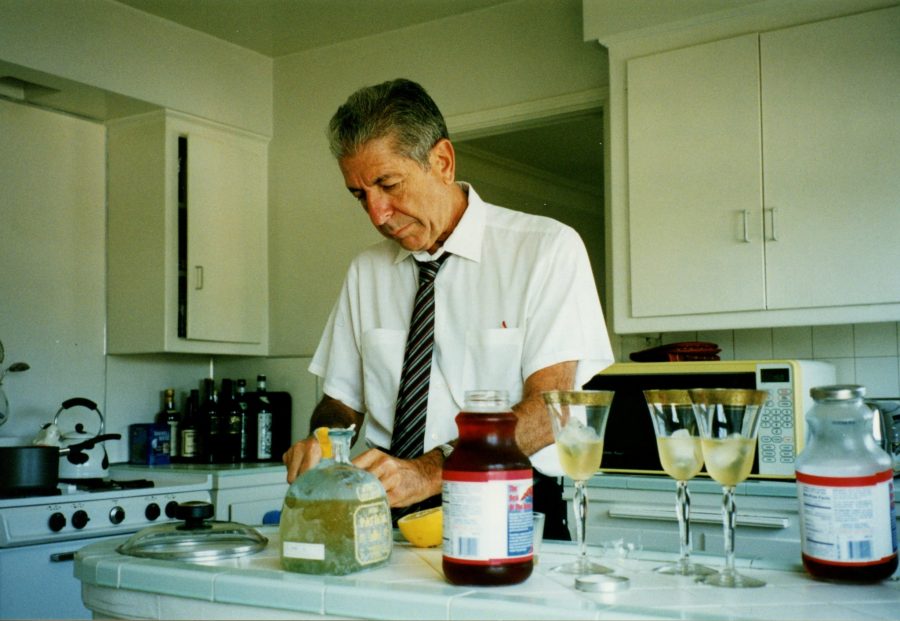
Image by Jarkko Arjatsalo, The Leonard Cohen Files
Back in 1975, poet and singer-songwriter Leonard Cohen created a cocktail that he called The Red Needle. According to the website, "The Hitchhiker's Guide to the Galaxy," here's how to make it:
If you'd like to entertain your friends with a few Red Needles, and you feel you must have a recipe, here's something too smooth to go by:
Into one very tall glass about half full of crushed ice pour and drop:
2 oz tequila (that's 2½ English measures or about 60ml)
1 slice lemon
enough cranberry juice to top up the glassRepeat for each friend.
Serve with Montreal smoked meat sandwiches accompanied by Leonard Cohen's Various Positions.
If you don't want to make it at home, you can always visit NYC and head to the Jewish Museum, where, notes the NYTimes, "the drink is being served on Thursdays in August in the museum lobby."
Would you like to support the mission of Open Culture? Please consider making a donation to our site. It's hard to rely 100% on ads, and your contributions will help us continue providing the best free cultural and educational materials to learners everywhere.
Also consider following Open Culture on Facebook and Twitter and sharing intelligent media with your friends. Or sign up for our daily email and get a daily dose of Open Culture in your inbox.
Related Content:
F. Scott Fitzgerald Conjugates “to Cocktail,” the Ultimate Jazz-Age Verb (1928)
Winston Churchill Gets a Doctor’s Note to Drink “Unlimited” Alcohol in Prohibition America (1932)
Drinking with William Faulkner: The Writer Had a Taste for The Mint Julep & Hot Toddy
Leonard Cohen’s Cocktail Recipe: Learn How to Make “The Red Needle” is a post from: Open Culture. Follow us on Facebook, Twitter, and Google Plus, or get our Daily Email. And don't miss our big collections of Free Online Courses, Free Online Movies, Free eBooks, Free Audio Books, Free Foreign Language Lessons, and MOOCs.
from Open Culture https://ift.tt/2ON9fGu
via Ilumina
Comments
Post a Comment